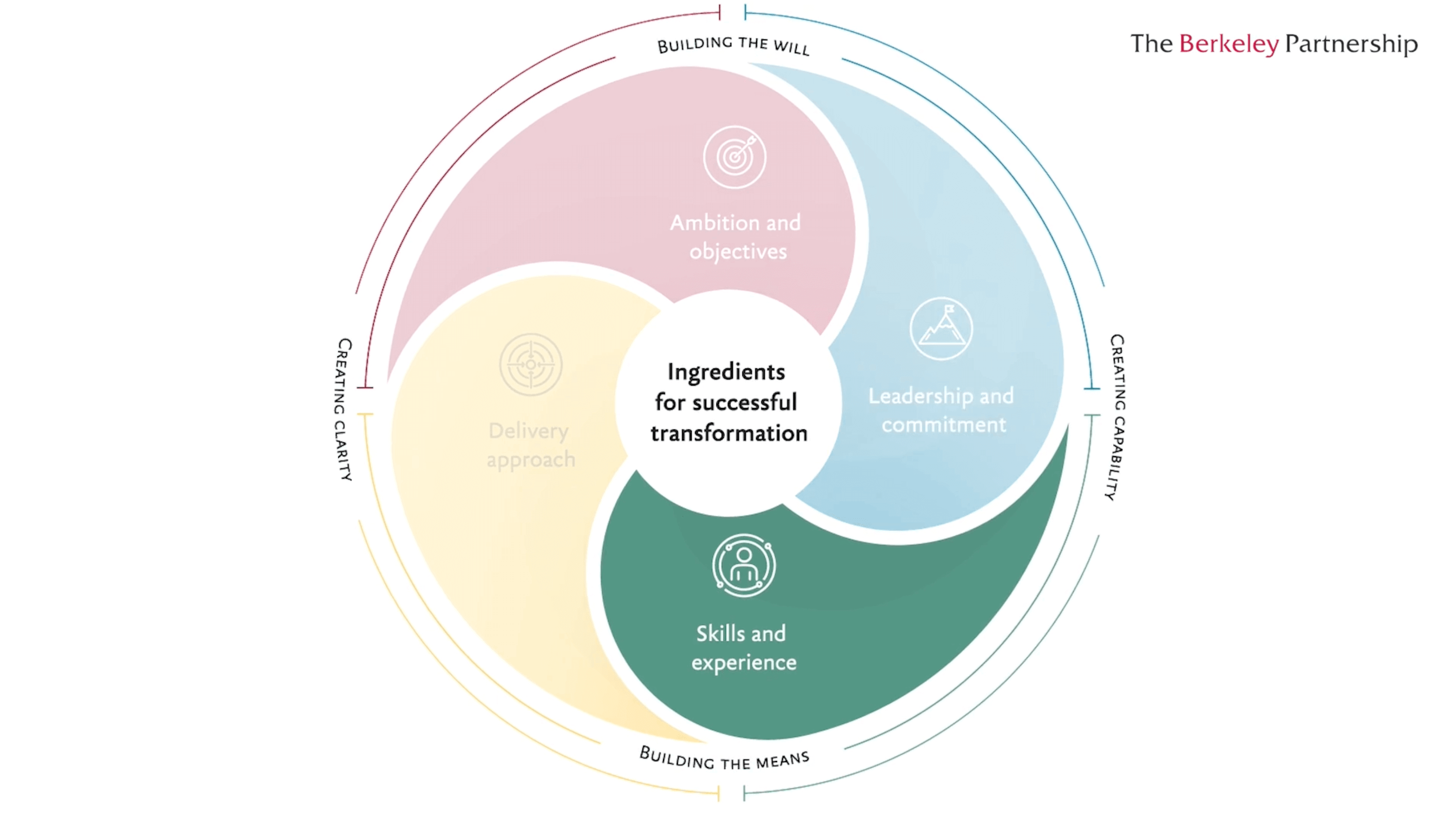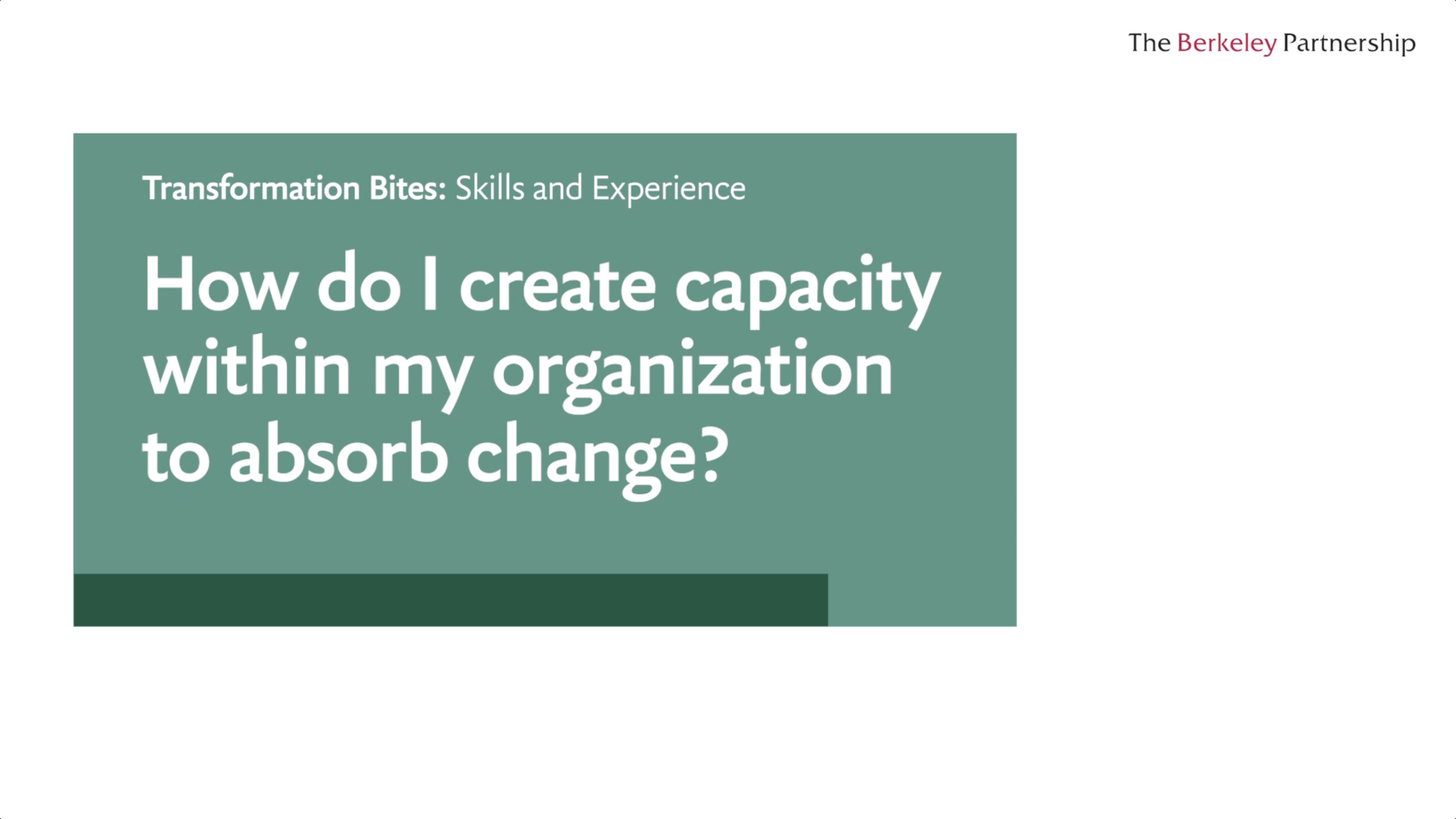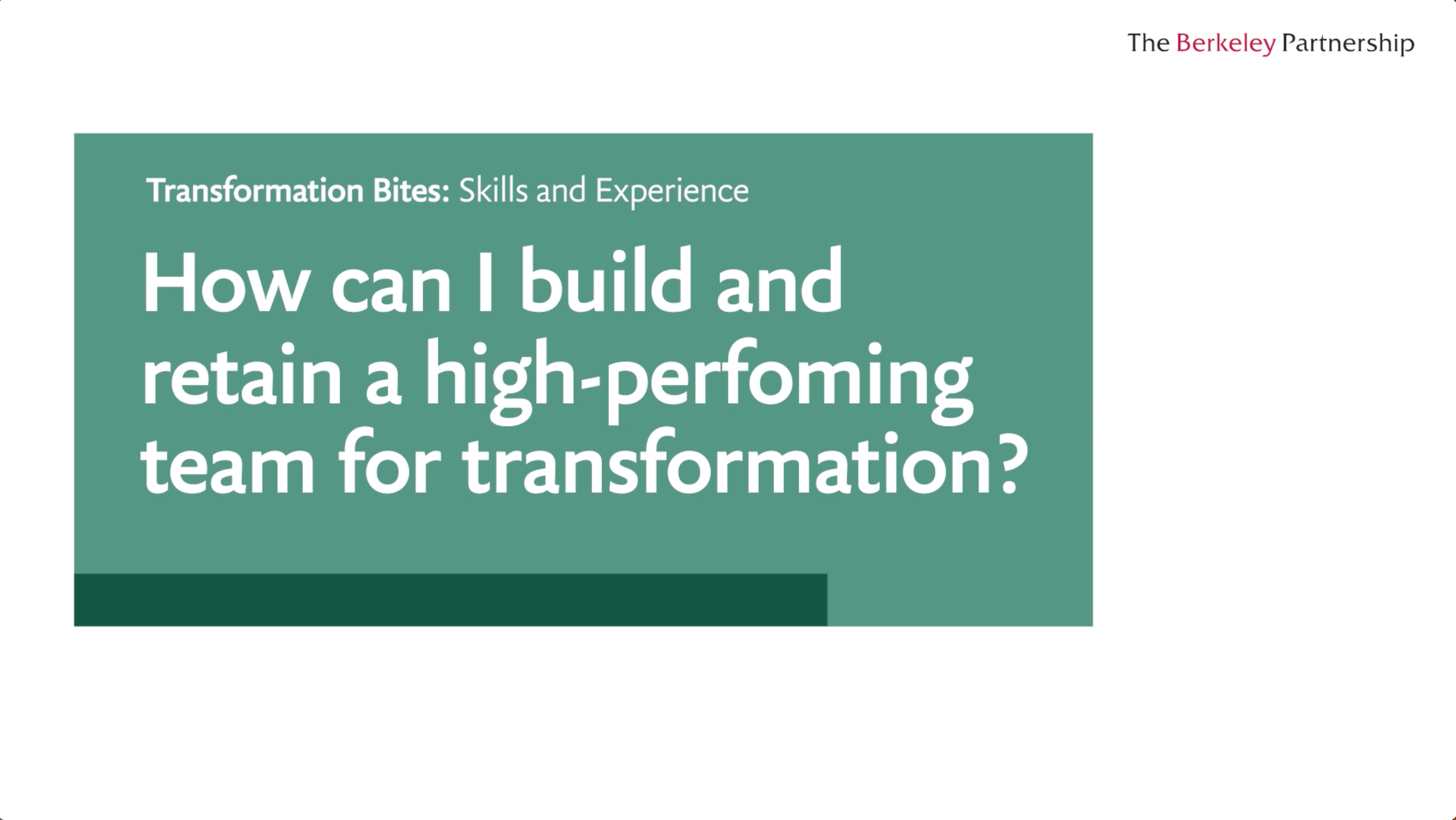
Justin: Attracting the right talent and skills for a transformation program means articulating the ambition in a compelling way. This ambition should align with the values you want to promote within the organization, and you should be really clear on how you're going to deliver it. You need to truly understand the culture, skills and experience required from both your transformation team and your business sponsors. Successful transformation is owned and driven by the sponsors who carry the confidence of the organization and can act as role models to embed change.
Tony: Most businesses don't necessarily have the right people in-house. You need to assess the skills you build versus those you buy in. And if you do choose to bring in external support, you still need to retain that right degree of in-house control so that you maintain business knowledge and culture. Your skilled people have day jobs and early on, you might need to think about creative ways to carve out their capacity. It's also worth investing in talent upfront and in the right areas, which includes specialist skills or teams. This investment, whether it's time, effort, costs, or a combination of all three, will pay dividends later.
Justin: This is equally true for the partner organizations you use. You need to ensure that your contracts and commercial arrangements have the right incentives and are balanced. Operating at speed is dependent on expertise and sound judgement. You may have to iterate as your program progresses, so make sure you're building in flexibility and the right mix of skills.
Tony: So, in conclusion then, successful transformation requires building and sourcing the right skills, investing wisely in talent, creating the right capacity and ensuring you've got active business sponsorship.



















